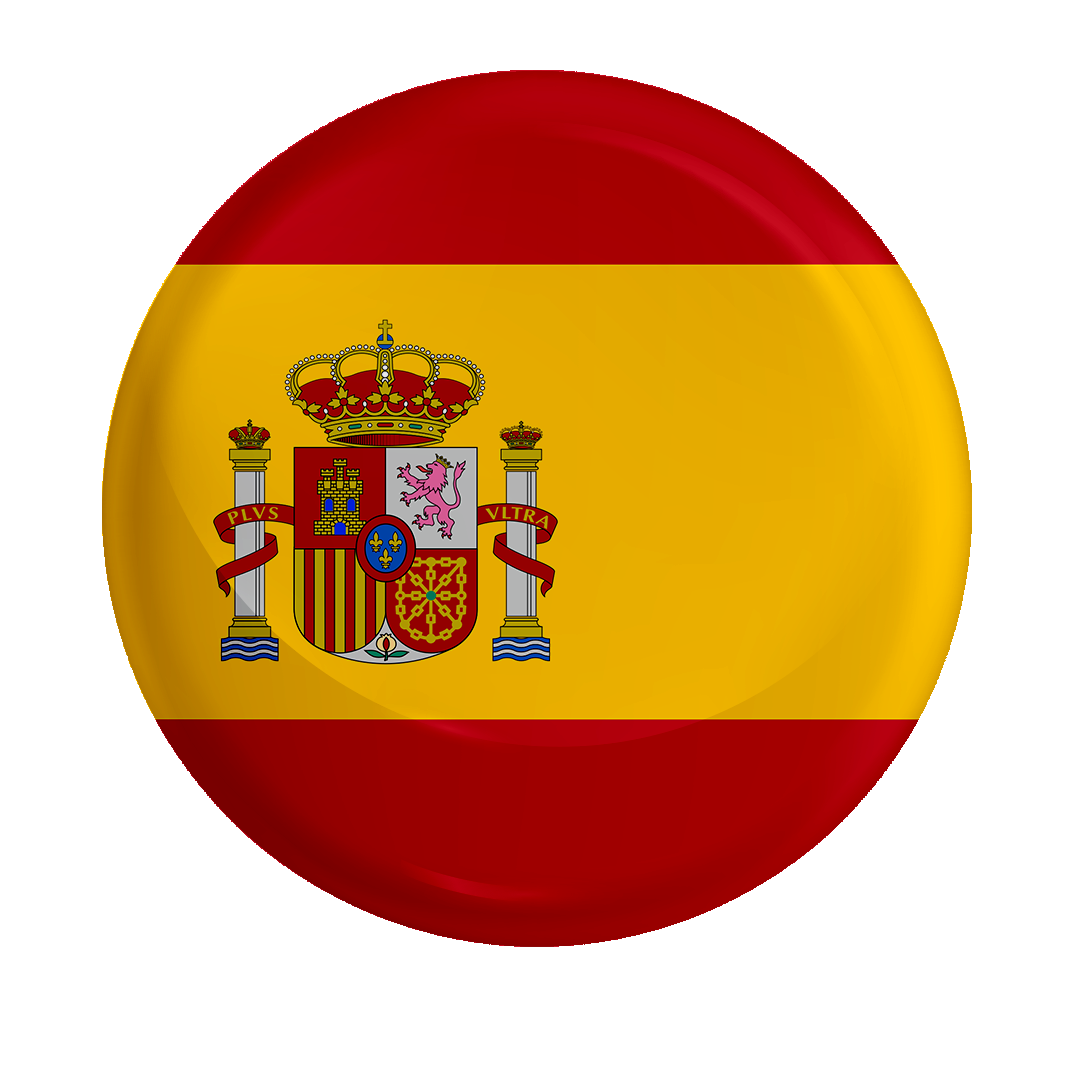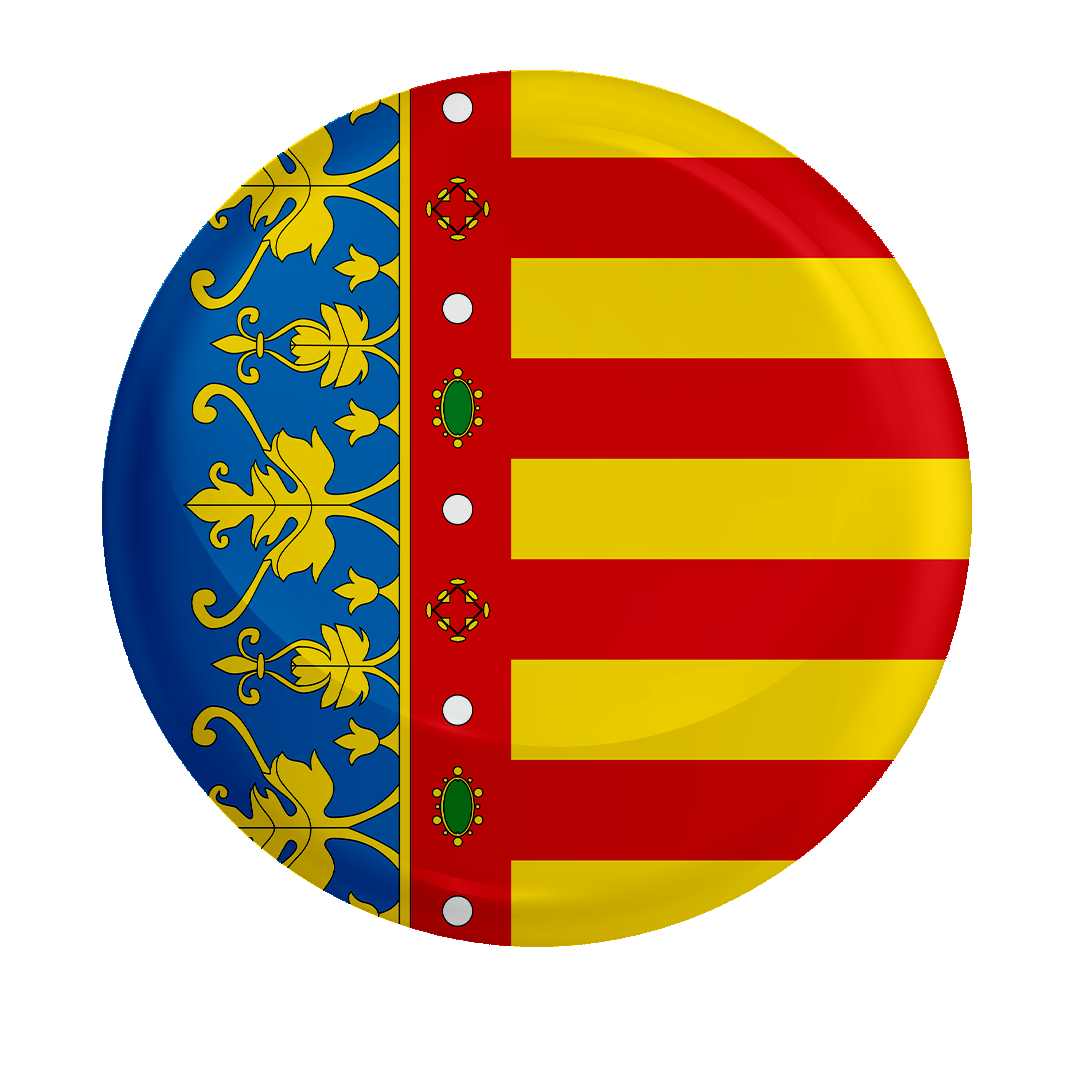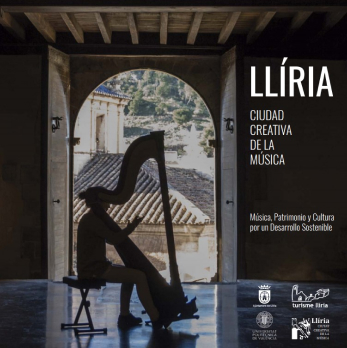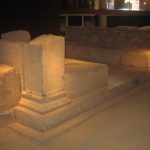Llíria on the Web
Llíria and its music look to the future after its great debut at UNESCO The capital of Camp de Turia is celebrating its first year as the Creative City of Music and has already carried out numerous activities despite the restrictions caused by the COVID
Llíria savours one of the sweetest stages of its rich multicultural history. The city that we all associate with a “Symphony of Cultures” because of its brilliant Iberian, Roman, Arab and medieval past, wrapped in the best chords of its prestigious bands, was recognised on 31st October by UNESCO as a “Creative City of Music”.
Thus, the capital of Camp de Turia proudly and responsibly took on the mission of raising the flag of Valencian music before the most important educational and cultural body in the world.
Llíria is currently celebrating its first year of membership of the UNESCO Creative Cities Network, where in a very short time it has won the affection, respect and admiration of large cities on all five continents, with which it shares an ambitious common project: to promote culture as the best means of local development, through education and international cooperation and under the principles of sustainability, solidarity and equality defended by Agenda 2030.
Llíria’s arrival in this network has not gone unnoticed, despite being one of the least populated of the 247 members. In September, the Director General of Unesco, Audrey Azoulay, gave Llíria as an example in her opening speech at the 3rd Creative Cities Meeting in Beijing. Azoulay acknowledged the city’s solidarity effort at the start of the pandemic: “We have seen the resilience and solidarity of our network in action in Llíria, in Spain, UNESCO’s Creative City for Music, which invited its professional and amateur musicians to give a concert from its balconies and served as an example for other cities”.
The Unesco president referred to the international initiative “Windows of Music and Hope”, which was promoted from Llíria to unite people through the music of Beethoven at the worst moments of the health crisis. This action was widely reflected at the time on the official website of Unesco and its social networks, with a visibility of nearly 5 million people around the world. And it has not been the only Edenic initiative that Unesco has highlighted this year. At the beginning of June, as soon as the health authorities allowed it, Llíria was a pioneer in promoting a multi-artistic show in streaming, in collaboration with Bogotá and Leiria, also Creative Cities of Music: “The Awakening of the Arts”.
The event, organised by Llíria Town Hall, with the support of Turisme Comunitat Valenciana and the Institut Valencià de Cultura, took place on 6 June in front of the church of La Sang and was a tribute to all the victims and those affected by the first wave of the pandemic after the end of the national mourning decreed in Spain.
It also served to enhance the value of culture in times of crisis, connecting music, film, dance, theatre and design with historical heritage in an innovative show that can still be seen on the municipal Youtube channel. Unesco recognised this effort to vindicate local artists from different performing spheres, and also wanted to join in the promotion of the event, giving enormous visibility to Valencian artistic creation and local heritage, represented in the 13th century church of La Sang, a National Monument that has become one of the cultural symbols of Llíria. With this type of event, Llíria assumes one of its main mandates as a member of this international network, which identifies creativity as a strategic factor for sustainable urban development.
At the same time, it achieves an extraordinary international positioning, not only because of the worldwide focus that its presence on UNESCO’s digital channels represents, but also because it participates in joint and feedback actions with cities such as Bogotá, with more than 7 million inhabitants.
New "Glocal" image
New “Glocal” image. In view of this new era of visibility that the UNESCO showcase represents for Llíria, one of the first decisions was to adapt and modernise its image. At the end of 2019 a professional process was carried out, open to all political groups, to create a new logo for the city, which will be associated for at least four years with the official seal of the Creative Cities Network.
The chosen logo has as its iconic image the Kalathos Dance Piper. This ceramic vessel from the 3rd-2nd century BC, from the ancient Iberian city of Edeta (Tossal de Sant Miquel de Llíria), represents a group dance to the sound of a woman playing a long double flute.
What better icon to project a musical tradition that survives through different centuries and cultures? The Edenese flutist, who has become the A for Llíria and looks to the future, is thus integrated into the image of the city, incorporating into the ensemble the motto that recognises its international capital: Llíria City of Music. At the same time, the creation and consolidation of a new website and social networks associated with this new brand “Llíria City of Music” was promoted, which serve as an unbeatable showcase to announce and promote the city’s vibrant cultural life, now through a different prism: acting locally, but thinking globally.
Currently, more than 25% of the followers of the social networks of “Llíria City of Music” are from outside the Valencian Community Region, thanks to the numerous publications in English (two per week of different amplitude). On Twitter each month there are more than 10,000 impressions, making it one of the most active accounts and with the best commitment to the creative network.
On Facebook, the organic reach averages 1,500 hits per publication, reaching peaks of 9,000 hits. Instagram, the most recently created network, has managed to reach more than 600 followers in a short time, the majority of whom have a young profile that connects with the world of music through story-telling adapted to the most current language.


Network for
sustainable development
Llíria is the only Creative City in the category of Music that exists in Spain, next to Seville. The other Spanish cities belong to one of the other creative areas: Crafts and Popular Art, Design, Cinema, Literature, Digital Arts and Gastronomy. Dénia belongs to this last category, with which Llíria is also preparing ambitious cooperation plans to jointly promote the culinary and musical excellence of the Valencian Community.
Spanish cities meet a couple of times a year to design joint projects. The most imminent is an exchange programme for local artists, which started a few days ago online with the 1st National Forum of Artists from Creative Cities. The advantages of belonging to a network connected across the five continents are undeniable, due to the possibilities of synergies, visibility and learning.
But it also requires a series of commitments. The UNESCO Creative Cities Network, created in 2004, aims to stimulate and improve the initiatives carried out by member cities to make creativity an essential component of urban development, especially through relations involving the public and private sectors and civil society.
It also seeks to strengthen the creation, production, distribution and dissemination of cultural activities, goods and services or to develop centres of creativity and innovation and to expand opportunities for creators and professionals in the cultural sector. The main objectives are to improve access to and participation in cultural life and the enjoyment of cultural goods and services, especially for marginalised or vulnerable groups and individuals. And of course, to fully integrate culture and creativity into local development strategies and plans.
Intense debut
despite the crisis
In order to pursue these objectives, Edenese society has turned its attention to a very special year, marked by the Covid-19 crisis. And it has done so through municipal initiatives and also with the leadership of its prestigious groups, the Banda Primitiva and the Unió Musical, which have strengthened and adapted to the circumstances its already rich musical agenda.
So too have the other entities that make up the diverse musical panorama of the capital of the Camp de Turia: the Orquestra de Plectre ‘El Micalet’, the Agrupación Musical ‘Vicente Giménez’, the Grup de Danses i Rondalla ‘El Tossal’ and the Banda UDP, a pioneer in Spain as a musical group for retired people and pensioners. And of course the Conservatori Municipal, which like the Unió and the Primitiva, has had to adapt its teaching work to the new circumstances through the use of technology. Some of the most supportive initiatives during the confinement have come from the Conservatori, with videos where the young apprentices, coordinated in their homes, offered their performances to the rest of the population.
The teachers also participated in different initiatives, such as the musical congratulations to the Chinese people in their New Year or the performance of a video clip in the streets of Llíria, with a song dedicated to the City of Music. Both the conservatory and the different musical groups were the protagonists of one of the most successful campaigns of the year: “Clásicos Llíria city of Music”.
During the period of confinement, the entities offered a selection of their repertoire through social networks and the web, with some concerts still unpublished for the general public. Every day for more than a month the citizens of Llíria and all over the world were able to enjoy an extraordinary concert from their homes, completely free of charge and with great quality. In this way, we were able to create a magnificent musical repository with the best “Made in Llíria” performances.
The unbeatable letter of presentation to Unesco took place with the concert ‘Música per la Pau’, held in a crowded Pla de l’Arc pavilion at the beginning of the year. More than 300 young people from different entities joined their talent for a noble cause: peace and social inclusion, one of the 17 sustainable development objectives of the United Nations. They included the Allegro ONCE Choir of Valencia, the Unió Musical de Llíria Youth Band, the Primitiva Youth Band of Llíria, and the Cor l’Alegria of the CEIP Sant Miquel. It was also broadcast live and is available on the municipal Youtube channel.










